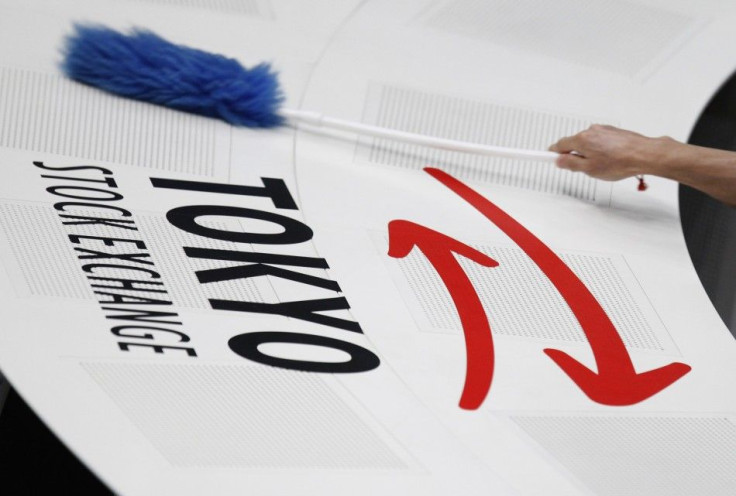Asian Markets, Gold Ease Before FOMC Meeting; Nikkei Outperforms Peers

Gold futures declined for the third straight session on Wednesday as traders await the outcome of the U.S. Federal Reserve’s two-day policy meeting for hints about the future of the bank's $85 billion bond-buying program.
Spot gold declined 0.08 percent to $1,366.64 during trading hours in Asia on Wednesday, moving closer to a four-week low of $1,356.24 recorded on May 23. Gold prices have been on the decline, weighed down by a strong U.S. dollar, which has an inverse relationship with the precious metal.
Signs of a sustained economic recovery in the U.S. have raised speculation that the Fed might scale down its bond-buying program sooner than later, pushing the dollar index up more than 5 percent this year. Any further hints from the Federal Open Market Committee, or FOMC, meeting about the bond-buying program could push the dollar higher and renew downward pressure on gold prices.
In his testimony to Congress in May, Fed Chairman Ben Bernanke had said the central bank could scale down its asset-purchase program in the "next few meetings.”
"A watering-down of the market's quantitative easing tapering expectations should see shorts cover their positions, while any hint that tapering will occur sooner than markets expect should see the market push lower," a note from ANZ analysts said on Wednesday, Reuters reported.
Meanwhile, Asian stock markets mostly declined on Wednesday as investors opted for caution ahead of the FOMC meeting. However, the Japanese Nikkei outperformed its regional peers as a weaker yen and stronger export numbers for May boosted exporters' stocks.
“As there was market turmoil on concern about tapering in the U.S., I think the Fed is going to try to bring some calm,” Hiroichi Nishi, an equities manager in Tokyo at SMBC Nikko Securities Inc, told Bloomberg.
Japan’s Nikkei surged 1.83 percent while Hong Kong’s Hang Seng fell 0.59 percent and China's Shanghai Composite index declined 0.75 percent. South Korea’s KOSPI slipped 0.65 percent while India’s BSE Sensex was trading down 0.22 percent in early afternoon trade.
Official data released Wednesday showed that Japan’s seasonally adjusted trade deficit widened to 821 billion yen ($8.6 billion at current exchange rates) in May compared to 702.8 billion yen in the previous month. However, exports rose more than expected, thanks to a weaker yen, surging 10.1 percent to 5.77 trillion yen in May on an annual basis, beating a Reuters estimates of a 6.5 percent increase.
© Copyright IBTimes 2024. All rights reserved.



















